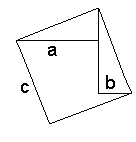| Syllabus |
| Homework |
| Handouts |
| Grading |
| Other resources |
| Math Links |
| Lecture Room: | W406 MSC |
| Lecture Time: | TuTh 1-2:15 |
| Final Exam: | TBA, W406 |
| Lecturer: | David Zureick-Brown |
| Office: | W430 MSC |
| Phone: | (608) 616-0153 |
| Email: | dzb@mathcs.emory.edu |
| | |
| Text: | "An Introduction to Abstract Mathematics", Bond and Keane |
| Office Hours: | Wed 4:30-6:30 (in E406) |
| |
 |